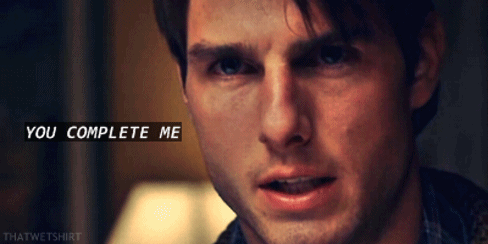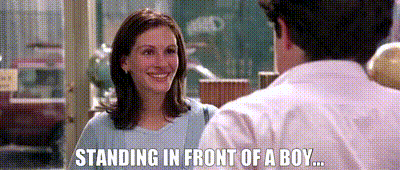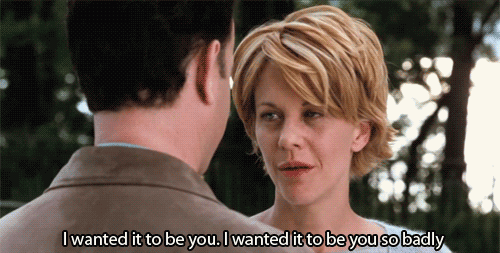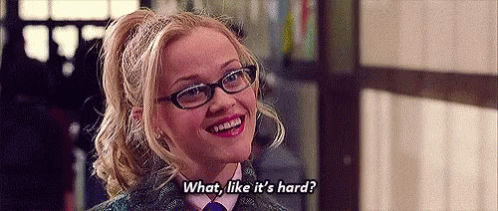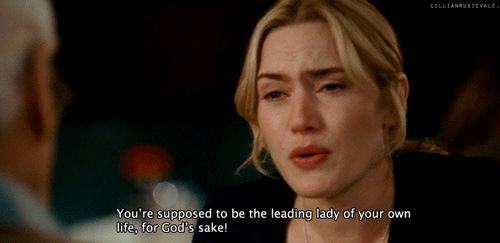Rom-Coms Taught Me How to Lead
Turns out rom-coms were secretly preparing us to lead the whole time.
I didn’t expect romantic comedies to shape the way I lead. But somewhere between Meg Ryan’s stubborn sweetness, Sandra Bullock’s boardroom chaos, and Reese Witherspoon’s courtroom glow-up, I started to notice something.
These women were running things.
Sure, there were grand gestures and missed flights and emotional piano montages. But underneath all that? Emotional intelligence. Conflict resolution. Reinvention arcs. Strategic charm.
These weren’t just love stories. They were leadership case studies in heels.
Turns out, I didn’t just learn how to fall in love from Nora Ephron; I learned how to manage people, pitch ideas, and pivot mid-crisis.
Here’s what the rom-com universe taught me about being the kind of leader people actually want to follow.
The Power of the Monologue
“You complete me.” — Jerry Maguire (but also every solid pitch ever.)
Rom-coms revolve around one thing: the speech. The big, heartfelt, everything-on-the-line moment where the protagonist drops the act and tells the truth. Jerry Maguire doesn’t win over Dorothy with a spreadsheet. He wins her with clarity. Heart. Timing. “You complete me” is cheesy, sure, but it works because it’s vulnerable and real.
The same goes for leadership. The best leaders know when to stop hiding behind strategy and speak from the gut. They know when the room doesn’t need a plan but a point. They know how to create a moment.
We remember Harry’s New Year’s Eve confession because it was messy, direct, and honest. And that’s what sticks. Whether you’re pitching an idea or navigating a turning point, it’s not always about perfection. It’s about presence.
Takeaway: Influence isn’t just about having the right data. It’s about knowing when to look someone in the eye and say something they’ll never forget.
Emotional Intelligence = Main Character Energy
“I’m just a girl, standing in front of a boy…” — Notting Hill
Rom-com leads are flawed but emotionally fluent. They feel things, name things, and sense things. They read the subtext. They don’t just react; they respond.
Andie Anderson in How to Lose a Guy in 10 Days, who starts off playing a game and ends up learning how to actually see someone, and let herself be seen. It’s that shift from manipulation to vulnerability that changes the story.
It’s the same in leadership. Strategy without self-awareness is chaos. Knowing how to read a room, hold silence, or check your own ego? That’s what makes people want to follow you, even when things get messy.
Takeaway: Emotional fluency is the real power move. The best leaders, like the best romantic leads, know how to feel the moment without letting it derail the mission.
Conflict Isn’t Failure. It’s the Arc.
“I wanted it to be you. I wanted it to be you so badly.” — You’ve Got Mail
You’ve Got Mail is literally about business conflict. A corporate chain is crushing Kathleen Kelly’s family-run children’s bookstore. Joe Fox is her rival and, eventually, her love interest. The entire plot is about two people with opposing visions, who learn to see past their egos, admit their blind spots, and build trust in the middle of the mess.
Leadership is like that. You can’t avoid tension. You navigate it. You move through it without burning everything down. And, ideally, you do it with grace (and maybe just a little well-timed banter).
Great leaders don’t frame conflict as a problem; they see it as part of the story arc. The turning point. The thing that gives the resolution meaning.
Takeaway: If you want a clean story, skip leadership. But if you want growth? Get comfortable with the tension.
Reinvention Is the Plot Twist
“What, like it’s hard?” — Legally Blonde
Every great rom-com protagonist breaks before they rise. Elle Woods gets dumped on a lawn in Beverly Hills. Jenna Rink wakes up in a 30-year-old body she doesn’t recognize. Bridget Jones spirals, over and over again. And yet, they all find their way forward. They evolve. Not by becoming someone new, but by returning to themselves more clearly.
Leadership requires reinvention. Sometimes you outgrow a season. Sometimes you realize you were playing by someone else’s rules. Sometimes the plan doesn’t just stall; it combusts. And then? You rebuild.
The montage is always coming.
Takeaway: The real power is in the pivot. You don’t lose credibility by changing; you earn it by being honest about why you had to.
Soft Power Is Still Power
“You’re supposed to be the leading lady of your own life, for God’s sake!” — The Holiday
Rom-com leads don’t succeed because they’re the loudest in the room. They succeed because they connect. They listen. They care.
Just look at Iris in The Holiday. She’s not bold or brash but she’s brave. Brave enough to change her life, set boundaries, and finally choose herself. She wins not by dominating, but by healing. By being kind, resilient, and emotionally present. That’s soft power.
Sally Albright isn’t a disruptor; she’s consistent, self-assured, and quietly brilliant. Lucy from While You Were Sleeping doesn’t demand attention—she builds trust one moment at a time. These aren’t loud leaders. But they lead.
You don’t need to dominate a room to command respect. Soft power is still power. Presence. Empathy. The ability to create belonging without performance. These are traits that build teams, communities, and trust.
Takeaway: Leadership doesn’t always look like the alpha. Sometimes, it looks like kindness that knows its worth.
Rom-coms didn’t just teach us about love. They taught us about vision. Listening. Timing. Clarity. Growth. How to walk into a room and own it while leaving space for someone else to belong there too. How to revise a story mid-scene. How to say the thing. How to apologize when we get it wrong. How to know the difference between who we thought we were… and who we’re ready to become.
Turns out, the entire genre is one long leadership arc. We just didn’t recognize it at the time. But now? I’m watching it all differently.
And I’m leading that way too.
What’s a rom-com moment you’ve never forgotten—because it quietly taught you something real about leadership, vision, or showing up for yourself? I’d love to hear it.
Where We Can Build Together
Narrative Strategy & Consulting
I help brands, creatives, and founders clarify their voice, articulate their story, and build lasting resonance. Whether you're navigating a creative pivot, refining your positioning, or translating vision into language, I bring structure to what you feel but haven’t yet said.Creative Direction & Filmmaking
I direct emotionally intelligent, visually grounded stories that move with mood and meaning. My work lives in the tension between longing and becoming—built for brands, campaigns, and cultural projects that value nuance, depth, and cinematic soul.
If you like this, you’ll love what’s next.
If you’re new—hi, I’m Ghazal. Filmmaker, narrative strategist, and story architect. Creative by nature, strategic by design. I write about storytelling, creative pivots, and personal reinvention for the ones rewriting their story in real time. If that’s you, you’re in the right place.
Follow me on Instagram
Connect with me on LinkedIn
Listen to my playlists on Spotify



